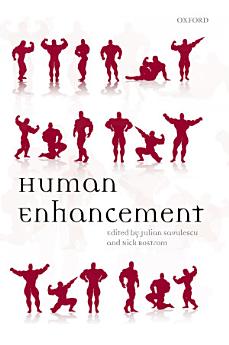Human Enhancement
ינו׳ 2009 · OUP Oxford
ספר דיגיטלי
432
דפים
family_home
כשיר
info
reportהביקורות והדירוגים לא מאומתים מידע נוסף
מידע על הספר הדיגיטלי הזה
To what extent should we use technology to try to make better human beings? Because of the remarkable advances in biomedical science, we must now find an answer to this question. Human enhancement aims to increase human capacities above normal levels. Many forms of human enhancement are already in use. Many students and academics take cognition enhancing drugs to get a competitive edge. Some top athletes boost their performance with legal and illegal substances. Many an office worker begins each day with a dose of caffeine. This is only the beginning. As science and technology advance further, it will become increasingly possible to enhance basic human capacities to increase or modulate cognition, mood, personality, and physical performance, and to control the biological processes underlying normal aging. Some have suggested that such advances would take us beyond the bounds of human nature. These trends, and these dramatic prospects, raise profound ethical questions. They have generated intense public debate and have become a central topic of discussion within practical ethics. Should we side with bioconservatives, and forgo the use of any biomedical interventions aimed at enhancing human capacities? Should we side with transhumanists and embrace the new opportunities? Or should we perhaps plot some middle course? Human Enhancement presents the latest moves in this crucial debate: original contributions from many of the world's leading ethicists and moral thinkers, representing a wide range of perspectives, advocates and sceptics, enthusiasts and moderates. These are the arguments that will determine how humanity develops in the near future.
על המחבר
Julian Savulescu is Uehiro Chair in Practical Ethics, Director of the Oxford Uehiro Centre for Practical Ethics, and Director of the Program on Ethics and the New Biosciences in the 21st Century School, University of Oxford Nick Bostrom is Director of the Future of Humanity Institute at the University of Oxford. He previously taught at Yale University in the Department of Philosophy and in the Yale Institute for Social and Policy Studies.
רוצה לדרג את הספר הדיגיטלי הזה?
נשמח לשמוע מה דעתך.
איך קוראים את הספר
סמארטפונים וטאבלטים
כל מה שצריך לעשות הוא להתקין את האפליקציה של Google Play Books ל-Android או ל-iPad/iPhone. היא מסתנכרנת באופן אוטומטי עם החשבון שלך ומאפשרת לך לקרוא מכל מקום, גם ללא חיבור לאינטרנט.
מחשבים ניידים ושולחניים
ניתן להאזין לספרי אודיו שנרכשו ב-Google Play באמצעות דפדפן האינטרנט של המחשב.
eReaders ומכשירים אחרים
כדי לקרוא במכשירים עם תצוגת דיו אלקטרוני (e-ink) כמו הקוראים האלקטרוניים של Kobo, צריך להוריד קובץ ולהעביר אותו למכשיר. יש לפעול לפי ההוראות המפורטות במרכז העזרה כדי להעביר את הקבצים לקוראים אלקטרוניים נתמכים.







